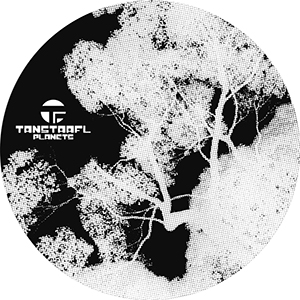Joey Anderson Head Down Arms Buddha Position
Compared to compadres like DJ Qu and Levon Vincent, Joey Anderson was something of a […]

Compared to compadres like DJ Qu and Levon Vincent, Joey Anderson was something of a late bloomer. Since the wider world has caught on to him, though (thanks in large part to a few well-placed pointers from Vincent on his Fabric 63 mix, not to mention Anderson’s seriously shadowy debut LP on Dekmantel earlier this year), he has become one of techno’s most singular and standout artists.
Anderson’s subliminal rhythms, humid darkness, and spaced-out sense of serenity unsurprisingly share certain hallmarks with fellow New Jersey resident DJ Qu, but there’s also a kinship with Bristol’s equally deep and hypnotic DJ October. It is for that reason that October’s and John Osborn’s TANSTAAFL label was the first to invite him over to DJ in Europe three years ago, and now, the transatlantic relationship has been fully consummated with a new, three-track EP, Head Down Arms Buddha Position.
The record finds Anderson doing what he does best, namely teasing out his occult synths and heartbreaking keys into captivating, slow-burning soundscapes that are both subtly seductive and unpredictable. Take the titular opening track, whose name implies a certain sense of awkward meditation, and where a wobbly, modulated acid line rumbles and rolls over deep kicks. That’s about it, frankly, yet after six minutes of unhurried unfolding, the song somehow ends up in a very different place than where started. The next track, “Tears Can’t Bring You Near,” starts with classic Anderson elements—rubberized kicks and misty, ticking hi-hats—before he layers in somber cosmic signifiers like distant solar breezes, swirling pads, and far-off glints of light. Dark and oppressive but also expansive and hopeful, it expertly speaks of an insular mind trying to break free from inner sadness.
The seriousness of Anderson’s music is mirrored in his titles, as evidenced by the EP’s beautifully ambient closer, “You Gave Me Life Again.” This one is again downbeat and heavy heeled, with just a few smears of radiant synth coming on like waves of guilt. But it’s the poignant and angelic keys dangling in mid air that really strike where it hurts, and that’s Anderson’s greatest attribute. As dark, sparse, and isolated as he can be, he always offers a little shaft of light that gives listeners hope and swells hearts in the process.

